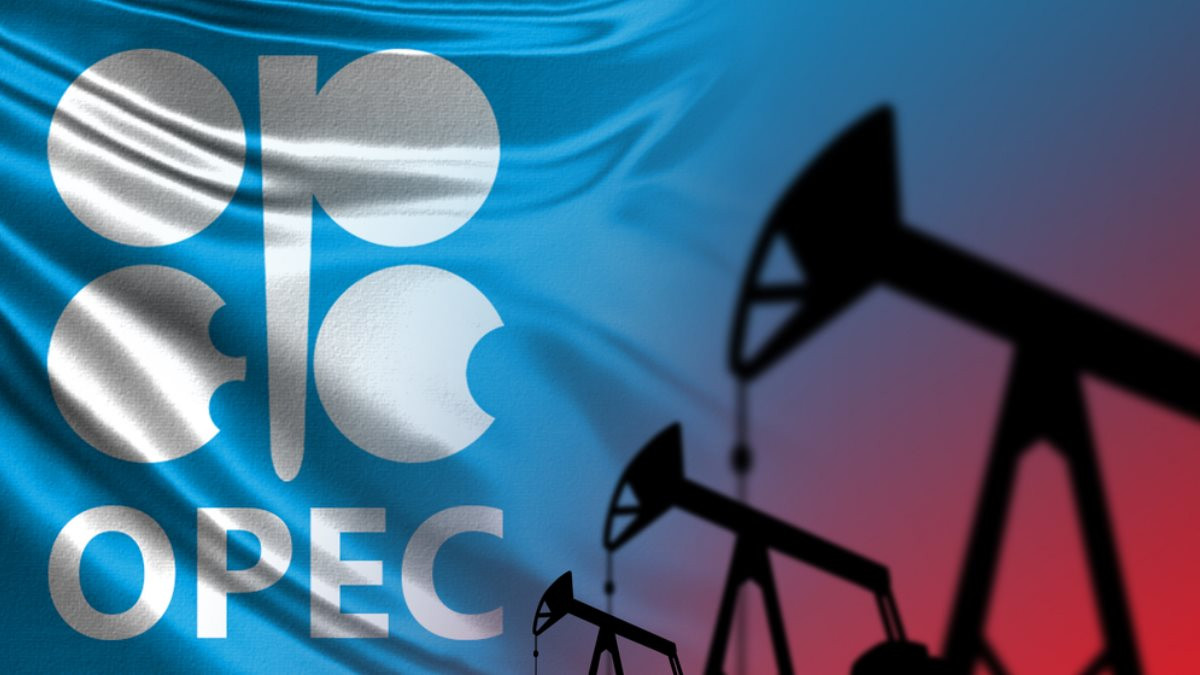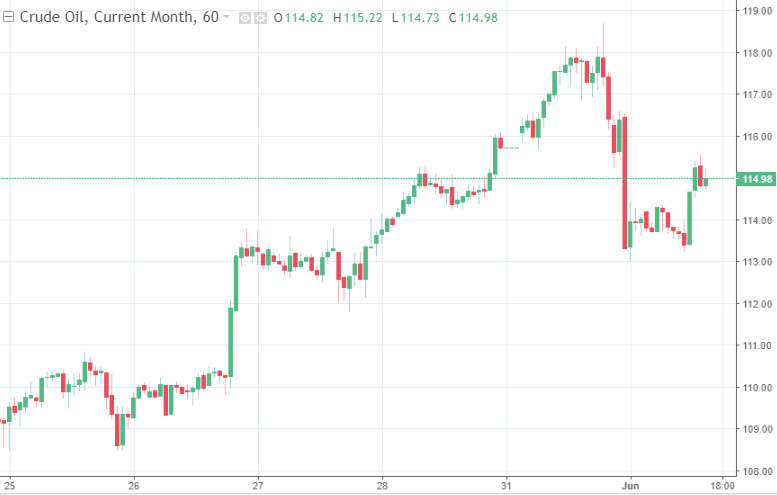On Wednesday, global oil prices are steadily increasing after a short decline a day earlier. The fall in oil prices on Tuesday was caused by speculations that some producers want to suspend Russia's participation in the OPEC+ production deal, as well as by new sanctions against Russia.

At the moment of writing, August Brent oil futures have gained 0.36% and are now hovering near $116.02 per barrel. A day earlier, Brent lost 1.7% and declined to $115.60 per barrel.
WTI oil futures for July rose by 0.44% to $115.17 per barrel on Wednesday. Yesterday, the futures contracts fell by 0.35% to $114.67 per barrel.

So, on Tuesday, oil depreciated by about 2% after a report that some OPEC members are exploring the idea of suspending Russia's participation in the deal over the conflict in Ukraine. The key factors in this case are the Western sanctions imposed on Russia and the partial embargo on Russian crude imports. This step will notably limit Russia's ability to ramp up oil production. The next OPEC+ meeting will take place on June 2, 2022.
In 2021, Russia, one of the world's top three crude producers, made a deal with OPEC and 9 other non-OPEC members to gradually increase output every month. Yet, amid anti-Russian sanctions, analysts predict an 8% drop in oil production.
Oil quotes were steadily rising until the news about Russia's possible suspension appeared in the media. In the early trade on Tuesday, Brent futures for July jumped above $124 per barrel for the first time since March 9.
Experts suggest that if the cancellation of Russia's membership is confirmed, the price of oil may drop to $100.
Today, markets are focused on supply prospects amid a ban on Russian oil imports to the EU. On May 31, the EU members agreed on the sixth package of sanctions which includes a partial embargo on oil and petroleum products imported by sea.
The sanctions ban local companies from providing insurance to Russian oil tankers. This means that from now on, Russia is isolated from the largest export market.
Restrictions will deal a heavy blow to oil deliveries to Asia which may disrupt Russia's plan to refocus on exports to China and India.
This ban can seriously hit the economy of Russia as the majority of European companies will refuse to transport oil without insurance. The effectiveness of this restriction was previously tested on Iran and proved to be successful.
Many European countries involved in shipping have already expressed concern about the ban on insurance for Russian oil tankers. So, the EU decided to implement it gradually within the next six months.
The official statement about the new restrictive measures against Moscow is expected in the coming days.





















